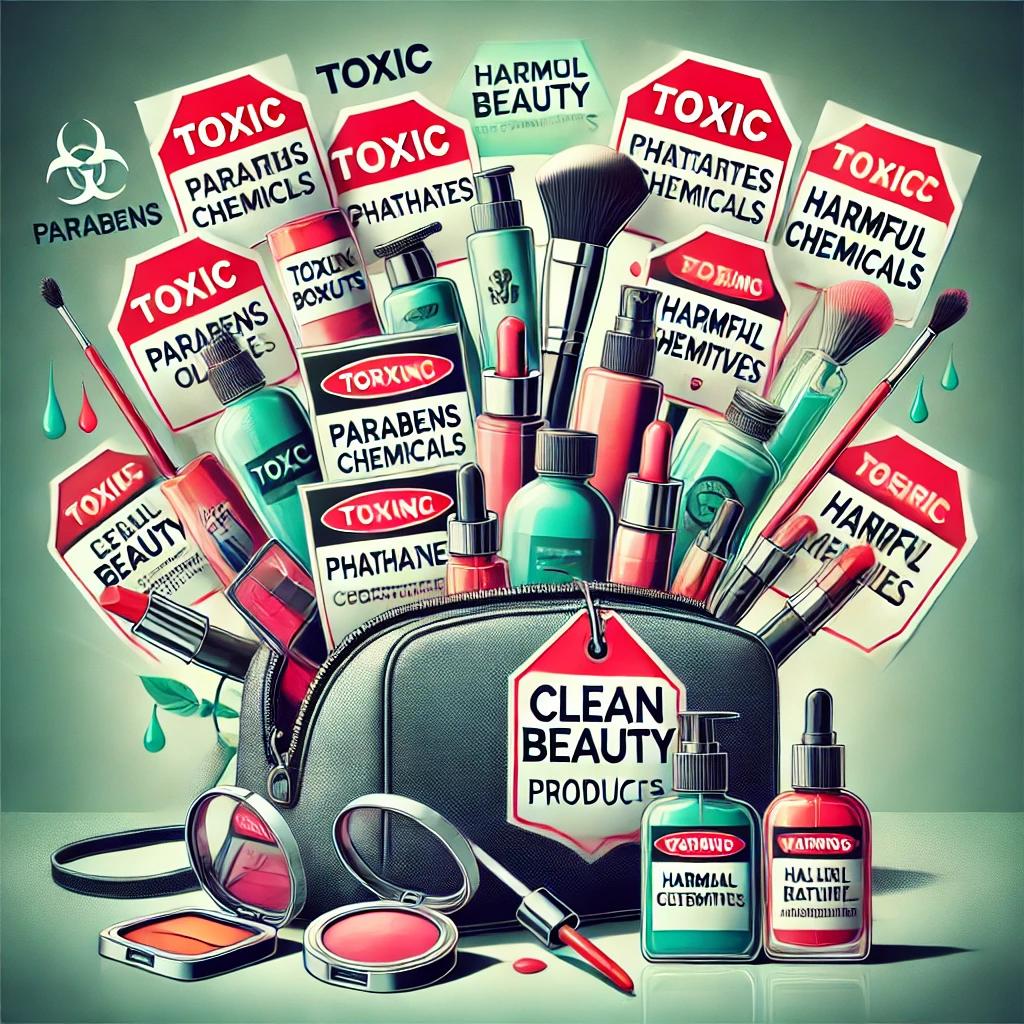Healing Your Body – What’s Normal and What’s Not After pregnancy
Pregnancy may be over, but your body is still on an incredible journey of recovery! While everyone talks about labor and delivery, postpartum recovery is often a mystery until you’re living it. From sore muscles to emotional shifts, your body needs time to heal. But what’s normal and what’s not? Let’s break it down so you know what to expect in the weeks after pregnancy.
1. The First Few Weeks – Your Body’s Natural Healing Process
After delivering your baby, your body shifts into recovery mode. Whether you had a vaginal birth or a C-section, your uterus, muscles, and hormones need time to adjust.
✔ What’s Normal?
- Bleeding (Lochia) – It’s like a long, heavy period that lasts four to six weeks as your uterus sheds extra tissue.
- Afterbirth Contractions – Mild cramps help your uterus shrink back to its normal size. They may feel stronger if you’re breastfeeding.
- Perineal Discomfort – If you had a vaginal birth, expect swelling, soreness, and sometimes stitches that take a couple of weeks to heal.
- C-Section Recovery – The incision area may feel tender, and movement can be challenging in the first few weeks.
🚨 When to Call a Doctor
- Heavy bleeding that soaks a pad in an hour.
- Severe pain or signs of infection (fever, redness, or foul-smelling discharge).
- Blood clots larger than a golf ball.
Your body is working hard to recover, so listen to it! Rest, hydrate, and take it easy.
2. Hormonal Rollercoaster – The Emotional Side of Recovery
Your pregnancy hormones don’t just disappear overnight! Estrogen and progesterone drop suddenly, which can leave you feeling emotional, weepy, or just exhausted.
✔ What’s Normal?
- Mood swings – One minute, you’re in love with your baby, and the next, you’re crying over spilled milk (literally).
- Baby Blues – Feeling overwhelmed, anxious, or teary for the first two weeks is common.
- Night Sweats – Your body gets rid of excess fluids from pregnancy, so don’t be surprised if you wake up drenched.
🚨 When to Get Support
- If sadness lasts longer than two weeks, it could be postpartum depression (PPD).
- Extreme anxiety, panic attacks, or intrusive thoughts need immediate attention—you don’t have to go through it alone!
Your emotions are just as important as your physical health, so talk to someone if you’re struggling.
3. Regaining Strength – When Will You Feel Like Yourself Again?
Postpartum recovery isn’t just about healing—it’s about regaining strength and feeling good in your body again.
✔ What’s Normal?
- Tiredness – Your body just grew a baby, gave birth, and is likely waking up every few hours—give yourself grace!
- Pelvic Floor Weakness – You might notice leaks when sneezing or laughing, but pelvic floor exercises can help.
- Diastasis Recti – Abdominal separation is common but improves with gentle core exercises.
🚨 When to Take It Slow
- If pain increases instead of getting better, don’t push yourself—your body needs more time.
- If you experience dizziness, shortness of breath, or extreme fatigue, check with your doctor.
Every mom’s recovery is different, so focus on nourishing foods, gentle movement, and plenty of rest.
Final Thoughts
Postpartum recovery isn’t one-size-fits-all—it’s a mix of healing, adjusting, and embracing your new normal. Whether you’re dealing with hormonal shifts, physical discomfort, or emotional ups and downs, know that you are not alone.
Your body is strong, capable, and doing exactly what it needs to heal. Give yourself time, patience, and kindness, and remember: every day, you’re getting closer to feeling like yourself again! 💕😊
First Weeks with Baby – Adjusting to Your New Routine

Bringing your baby home is an exciting, emotional, and sometimes overwhelming experience. One moment, you’re staring in awe at your little one, and the next, you’re wondering if you’ll ever sleep again. The first few weeks after pregnancy are a whirlwind of feeding, diaper changes, and learning how to function on little sleep. But don’t worry—you’ll find your rhythm, embrace the chaos, and grow into your new role as a parent.
Let’s talk about what to expect in the first few weeks with your newborn, how to adjust to your new routine, and most importantly—how to take care of yourself, too!
1. The First Few Days – Learning the Basics
From the moment you bring your baby home, everything changes. Your day (and night) now revolves around your newborn’s needs, and adjusting to this new normal can take time.
✔ What to Expect
- Feeding All the Time – Newborns eat every 2-3 hours, whether you’re breastfeeding or bottle-feeding. It might feel like all you do is feed, burp, and repeat.
- Diaper Duty – Your baby will go through 8-12 diapers a day, so stock up and get used to those frequent changes.
- Sleepless Nights – Babies don’t follow adult sleep schedules, so expect night wake-ups and power naps whenever you can.
💡 Tips to Adjust
- Take Shifts – If possible, share nighttime duties with your partner so you both get some rest.
- Follow Baby’s Lead – Forget strict schedules for now—focus on meeting your baby’s needs as they adjust to life outside the womb.
- Lower Your Expectations – Dishes, laundry, and emails can wait. Taking care of your baby and yourself is the priority.
2. The Emotional Rollercoaster – It’s Normal After pregnancy
One moment, you’re staring at your baby in pure joy, and the next, you’re crying over a spilled cup of tea. Postpartum emotions are real, and they hit hard.
✔ What’s Normal?
- Baby Blues – Feeling weepy, overwhelmed, or anxious in the first two weeks is completely normal as hormones shift.
- Mom Guilt – Wondering if you’re doing things “right” happens to every new mom. Spoiler alert: You’re doing great!
- Overprotectiveness – It’s natural to feel hyper-aware of every sound, movement, or change in your baby.
🚨 When to Get Help
- If intense sadness lasts beyond two weeks, it could be postpartum depression (PPD).
- If you feel extreme anxiety, intrusive thoughts, or disconnection from your baby, talk to a healthcare provider.
- Remember, seeking support is a sign of strength, not weakness!
💡 Tips to Cope
- Talk to Someone – Whether it’s your partner, a friend, or a support group, sharing your feelings helps.
- Sleep Whenever You Can – Even small naps can make a huge difference in your mood and energy levels.
- Be Kind to Yourself – You just went through pregnancy and birth—it’s okay if you don’t have it all figured out yet!
What to Eat for a Healthy Baby
3. Finding Your New Normal – It Gets Easier!
The first few weeks feel chaotic, but as time goes on, you’ll settle into a routine. Your baby will start to recognize patterns, and so will you.
✔ What Helps?
- Small Wins Matter – Taking a shower, drinking a hot cup of tea, or getting outside for fresh air are victories.
- Ask for Help – If someone offers to cook, clean, or hold the baby while you nap—say yes!
- Give Yourself Grace – No one has parenting perfected. You’ll learn as you go, and that’s okay!
💡 Encouragement for New Moms
- The sleepless nights won’t last forever—your baby will eventually sleep longer!
- Trust your instincts—you know your baby better than anyone else.
- Take it one day (or one hour) at a time—you’re doing an amazing job.
Final Thoughts
The first few weeks with your newborn can be exhausting, emotional, and overwhelming, but they’re also filled with precious moments of love, learning, and connection. Give yourself time to adjust, don’t be afraid to ask for help, and celebrate the small victories.
You’re not just adjusting to life with a baby—you’re becoming the incredible parent your child already loves so much! 💕😊
Hormonal Changes – Why Emotions Can Feel Overwhelming
You did it! You brought a tiny human into the world, and now you’re navigating postpartum recovery—physically, mentally, and emotionally. But just when you think the hardest part is over, you find yourself crying over a spilled cup of tea or feeling overwhelmed for no reason. What’s happening? Hormones.
After pregnancy, your body goes through a hormonal rollercoaster, adjusting to life after birth. These changes affect your emotions, energy levels, and even how you process daily stress. The good news? You’re not alone, and this won’t last forever. Let’s break down why your emotions feel all over the place—and how you can manage them with a little patience and self-care.
1. Why Your Emotions Feel Like a Rollercoaster
The moment you give birth, your body starts shifting from pregnancy mode to recovery mode. That means your hormones drop dramatically, which can trigger unexpected emotions.
✔ The Big Players in Your Mood Swings:
- Estrogen & Progesterone Drop – These pregnancy hormones plummet after birth, which can lead to mood swings, fatigue, and increased sensitivity.
- Oxytocin Surge – Known as the “love hormone,” oxytocin helps you bond with your baby but can also make you extra emotional.
- Prolactin Levels Rise – This hormone supports milk production but can sometimes lead to emotional ups and downs.
These hormonal shifts explain why you might feel like laughing one minute and crying the next. It’s completely normal and part of the postpartum adjustment.
2. Baby Blues or Something More?

Feeling weepy, anxious, or overwhelmed in the first couple of weeks is often due to the baby blues—a temporary emotional phase caused by hormone fluctuations.
✔ What’s Normal?
- Feeling emotional, tearful, or sensitive without knowing why.
- Being overwhelmed by small things (like folding baby clothes).
- Feeling exhausted but unable to rest properly.
The baby blues typically last 2-3 weeks and fade on their own as your hormones stabilize. However, if these feelings persist or become too intense, it might be postpartum depression (PPD).
🚨 When to Seek Help
- If sadness lasts longer than two weeks or worsens.
- If you feel disconnected from your baby or uninterested in daily activities.
- If you have intense anxiety, panic attacks, or intrusive thoughts.
Postpartum mental health struggles are common and treatable—you don’t have to suffer in silence. Talk to a doctor or therapist if you need support!
3. Coping with Postpartum Hormonal Changes
Your body is doing an incredible job recovering from pregnancy and birth, but emotional balance takes time. Here’s how to ease the transition and feel more like yourself.
✔ Practical Tips for Emotional Balance
- Get Enough Rest – Sleep deprivation makes everything feel more overwhelming, so nap whenever possible.
- Stay Hydrated & Eat Well – Blood sugar crashes can intensify mood swings, so keep snacks nearby.
- Talk About Your Feelings – Whether with a partner, friend, or support group, talking helps process emotions.
- Practice Deep Breathing – When stress hits, try slow, deep breaths to calm your nervous system.
- Give Yourself Grace – You’re adjusting to life with a newborn—perfection isn’t the goal, survival is!
Final Thoughts
Postpartum emotions can feel overwhelming, but remember: this is temporary, and you are doing an amazing job. Your body is healing, your hormones are stabilizing, and each day, you’re getting stronger.
Lean on your support system, take small moments for self-care, and know that it’s okay to ask for help. Whether you’re feeling emotional, tired, or just a little off, know that this phase will pass—and soon, you’ll feel more like yourself again. 💕😊
Getting Back to Exercise – When and How to Start Safely

Your pregnancy journey may be over, but your body is still healing, adjusting, and finding its new normal. You might be eager to start moving again—whether to rebuild strength, boost your mood, or just feel like yourself. But when is it safe to exercise after pregnancy, and how should you start?
The key is patience and listening to your body. Postpartum recovery looks different for everyone, and jumping back into workouts too soon can slow healing. Let’s talk about when you can safely start exercising after birth, what workouts are best, and how to ease back in without overdoing it.
1. When Can You Start Exercising After Pregnancy ?
The answer depends on your birth experience, your recovery, and how you feel physically. There’s no one-size-fits-all timeline, but here’s a general guide:
✔ If You Had a Vaginal Birth
- Light movement like walking is safe within the first few weeks, as long as you feel comfortable.
- Wait 4-6 weeks before resuming structured workouts—always check with your doctor first.
✔ If You Had a C-Section
- A C-section is major surgery, so healing takes longer—expect to wait at least 6-8 weeks before easing into exercise.
- Focus on gentle core activation and walking before trying anything intense.
🚨 Signs You Should Wait Longer:
- Heavy bleeding that worsens with movement.
- Pelvic pain, pressure, or discomfort.
- Abdominal separation (diastasis recti) that hasn’t healed yet.
Your postpartum body is incredible, but it needs time to regain strength—give yourself grace and rest when needed!
2. Best Exercises to Start With After pregnancy
You don’t need to dive into intense workouts to feel good again. Start slow, focus on healing, and build strength gradually.
✔ Safe Postpartum Exercises
- Walking – Great for circulation, energy levels, and mental clarity.
- Pelvic Floor Exercises (Kegels) – Strengthens muscles weakened by pregnancy and delivery.
- Deep Core Breathing – Helps reconnect your core and pelvic floor muscles.
- Gentle Yoga or Stretching – Increases flexibility and reduces stiffness from breastfeeding and holding your baby.
🚫 Exercises to Avoid (At First)
- High-Impact Workouts (Jumping, Running) – Your joints and pelvic floor need time to recover.
- Heavy Weightlifting – Start with bodyweight exercises before adding resistance.
- Crunches or Sit-ups – Can worsen diastasis recti (abdominal separation).
Listen to your body—if something feels off, slow down and focus on recovery first!
3. How to Stay Motivated & Make Time for Exercise
Finding time to exercise with a newborn can feel impossible, but small steps make a big difference!
✔ Tips for Staying Consistent
- Start with 10-15 minutes a day – Short workouts are easier to fit in and still beneficial.
- Move when baby naps – Sneak in a stretch session or a short walk.
- Make it fun! – Dance around the house, do baby-wearing workouts, or involve your partner.
- Don’t compare your journey – Every postpartum recovery is different—focus on how you feel, not how fast you “bounce back.”
Remember, exercise is about feeling strong and energized, not rushing into pre-pregnancy fitness.
Final Thoughts
Postpartum exercise is about healing, regaining strength, and feeling good in your body again—not about losing weight or rushing the process. Whether you start with walking, stretching, or pelvic floor work, every little movement counts.
Take it slow, listen to your body, and celebrate your progress! You just went through pregnancy, labor, and delivery—your body deserves patience, care, and a whole lot of love. 💪😊



